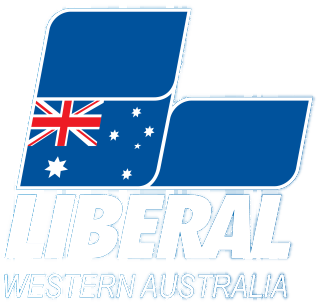When reports emerged at the beginning of last year suggesting the Perth Mint was plagued by significant compliance failures, WA Labor quickly attempted to hose down any concerns.
Then minister for mines and petroleum Bill Johnson called the reports a “beat-up,” while former Premier Mark McGowan famously described it as a “storm in a f…… tea cup.”
For those who don’t remember, the allegations levelled at the Perth Mint were no laughing matter and they still aren’t.
They centred on suspect banks based in international tax havens with substantial deposits at the Perth Mint, gold sold at sub-par qualities, and unreported transactions via its GoldPass app.
Consequently, concerns arose that the Perth Mint may be in breach of Commonwealth anti-money laundering legislation — the same type of legislation that saw Westpac fined more than $1 billion in 2020.
Except, if anything, the stakes were even higher at the Perth Mint; as a government-owned enterprise, any fines would ultimately be paid by WA taxpayers.
But, from the outset, WA Labor sought to gaslight the public over the seriousness of the issue.
They didn’t only demean the media’s coverage, they also used their parliamentary majority to thwart any thorough inquiry into compliance concerns at the Perth Mint.
It was for this reason that, as a Federal Senator for WA, I initiated a multi-partisan Senate inquiry into this.
I believed it was critical for WA senators to do the work, on behalf of the public, which the State Government refused to do.
The inquiry’s final report, published on Friday, comes after a year of public hearings, and several “in camera” sessions where witnesses presented more sensitive evidence behind closed doors.
It offers a damning assessment of WA Labor and singles out Mr McGowan for ignoring no less than three requests to engage with the Inquiry.
The report also sheds much-needed light on the conduct of past and present members of the Perth Mint board, who failed to adequately address compliance breaches despite commissioning four audits in the decade between 2010 and 2020.
Probably the most worrying aspect covered by the report is its confirmation that the same fines issued to Westpac, and to a lesser extent Crown Casino, remain looming over the head of the Perth Mint and therefore the WA taxpayer.
In August, Bill Johnson called the Inquiry a “political stunt” and “rubbish”.
In November, financial intelligence watchdog AUSTRAC entered into an enforceable undertaking with the Perth Mint over concerns it was still failing to comply with Federal anti-money laundering legislation.
Placing significant monitoring obligations on the Perth Mint, which faces serious consequences if it is breached, it was a powerful vote of no confidence in the institution’s regulatory standards.
Given this development, and other matters that have come to light, I wonder how confident Mr Johnson is in those comments now?
Despite his public dismissal of concerns around the Perth Mint, Mr McGowan must also have harboured anxieties over what was transpiring there, as he appointed Sam Walsh as chairman in 2019.
The inquiry was told by Mr Walsh in February, viva voce, that he failed to familiarise himself with a single one of the Perth Mint’s major clients when he assumed control of the board, despite admitting that he had been appointed to address the organisation’s compliance shortcomings.
Deflection was a disappointingly common theme throughout the Inquiry.
Along with Mr Walsh, the Perth Mint’s head of audit, John O’Connor, maintained repeatedly that the internal audits were of a satisfactory standard.
Mr O’Connor also told the inquiry that “management” was responsible for failing to comply with established and well-known anti-money laundering and CTF obligations.
That view was categorically dismissed by the Australian National Audit Office, the Office of the Auditor General for WA, and AUSTRAC.
All three organisations confirmed to the inquiry that responsibility for compliance lay squarely at the feet of the board.
This why the report found it was of “critical importance” that the board now provide a clear public statement — one that outlines how the regulatory failures occurred, and the steps taken to ensure these issues do not arise again.
All this places Mr McGowan and WA Labor in a position that demands a public explanation.
As the minister responsible for the Perth Mint from 2018-2020, he should have been fully aware of the seriousness of what was occurring and the possible exposure of WA taxpayers to such an enormous fine.
Or did he know of these serious compliance failures, yet decided to stonewall both WA and Federal parliaments for political motive?
Either way, the public deserves an answer.
Which is precisely why the report recommends the WA Government hold its own investigation into what happened at the Perth Mint — as it should have in the first place.
It’s also recommended that it make clear to the WA Parliament exactly what financial liability taxpayers could face if the enforceable undertaking is not complied with.
And that the 2020 internal audit report, a document West Australians must see if they are to fully understand what has happened here, be publicly released.
There are those, including Labor senators on the inquiry, who want the report to be the end of this investigation.
But it is only if the report’s recommendations are adopted in full, including the ongoing obligations on the WA Government and Perth Mint, that the Mint can fully restore its reputation as a commercial benchmark and cultural icon of our State — and WA taxpayers given the protection they deserve.
